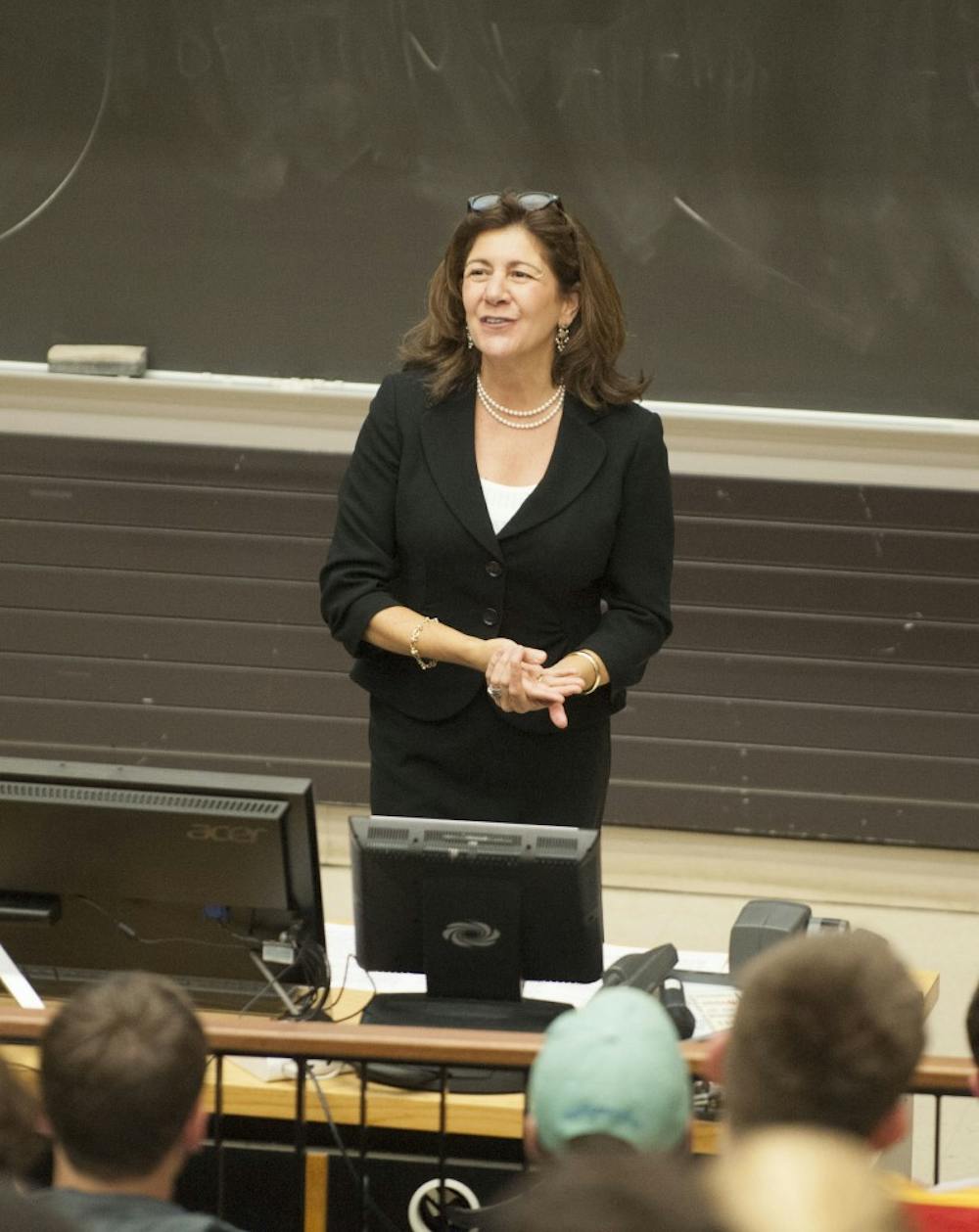Commerce Prof. Sherri Moore hosted a “Know Your Rights” lecture in conjunction with the Student Council Life committee Wednesday, speaking to students about how they can avoid being taken advantage of when encountering police officers.
Confrontations between college-aged people and police officers are inherently asymmetric conflicts — but this discrepancy can be exacerbated when students do not know their rights, Moore said.
When college kids are confronted by police officers, for example, they typically believe they are obligated to stay, she said. But Moore said police officers must have reasonable suspicion to detain a citizen. When a police officer confronts a student, she said the first question the student should ask is, “Am I being detained?”
“If the police officers tell you that you are not being detained [when they confront you], get out of there,” Moore said. “Move along. You don’t want to be sitting there trying to chit-chat.”
Though laws and rules guarantee the rights of citizens against unreasonable search and seizure without consent, Moore said there are logistical concerns in arguing with a police officer, and students should be cautious and polite when encountering a police officer.
“When you are asking them why they are detaining you, be careful. Be respectful," Moore said. "Because the minute you start trying to have a conversation with the police officers, you’re going to lose — because they do have the badge, they do have the gun and they have the power. Here’s the difference: they can make you go spend a night in the jail, and the next day the charges get thrown out. So what? They got their pound of flesh.”
Moore said students who are detained must provide their name, but they are not required to provider any further form of identification. Virginia, unlike other states, does not have a "stop and identify" law, she said.
Second-year College student Craig Dougherty said he went to the event as part of his duty to be an informed citizen.
“Should I ever encounter police and am in trouble, [I want to] know what rights I have so they don’t take advantage of me,” Dougherty said. “I think that [this topic] has been in the national spotlight a lot recently and, as part of my duty of being an informed citizen, I should know what rights every American has.”
Second-year College student Vijay Menon said the lecture was very helpful.
“Police officers don’t know everything and people often get flustered, so it’s better to be informed [than] to be just [waiting] around,” Menon said. “What I learned the most is that if you are aware of your rights you don’t need to submit to anything you don’t want to.”







